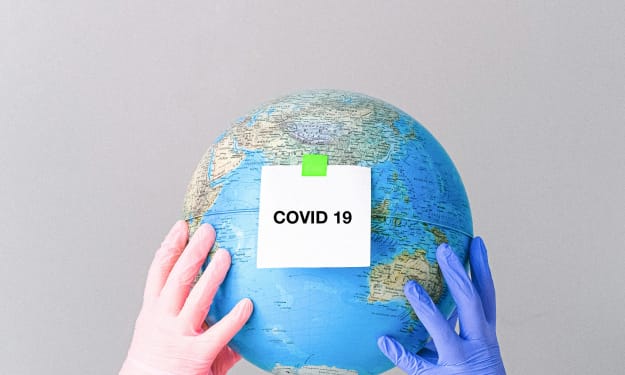The Possibility of Immortality: Fact or Fiction?
Is Living Forever Desirable?

Upon considering the matter, it appears that we hold a common fascination with concepts such as the Sorcerer's Stone, the Fountain of Youth, and even vampires for one reason: the desire to experience eternal life.
While some researchers argue that there exists no limit to the human lifespan, those in the ''No Limit Camp'' contend that continued advancements in science and self-care could potentially allow us to live indefinitely, or at least until our financial resources are depleted.
Recent studies suggest that the maximum human lifespan may be approximately 150 years, based on data collected from the world's oldest individuals over the past few decades. This research provides valuable insights into the limitations of human longevity and may inform future endeavors in this field.
The field of aging biology research and development of age-related disease treatments has led to the possibility of extending human life. It is hypothesized that the inevitable end can be delayed, potentially allowing individuals to live up to 300 years. While this would still offer a finite lifespan, it would not be considered too short.
However, the idea of living forever may not be desirable due to potential boredom and wishing to remain young. Currently, middle age is generally considered around 50 years old, but if lifespan triples, middle age may be considered closer to teenage years. With a longer lifespan, the feeling of reaching life milestones would be delayed until much later in life, such as reaching 100 years old.

The crucial aspect to consider is whether we will maintain the same biological and emotional capacity or not. Typically, our adolescent brain continues to develop and does not reach full maturity until around 25 to 30 years of age.

In my proposed scenario, this notion will remain the same. However, we will likely attend school for a more extended period and acquire new knowledge such as learning new languages, organ replacement, and AI lectures. The education system and curriculum will indeed undergo changes, allowing us more time to read and learn. Obtaining a diploma or pursuing higher education is a personal choice. If you opt not to pursue higher education, you can use that time to learn a skill like carpentry to earn a living.
I am confident that this concept will not change. You will have various job options to choose from, and retirement may not be necessary until much later in life. This way, you will have extra time to explore different careers and interests, pursue your goals, take risks, and develop your career.
Relationships

As we continue to experience longer lifespans, the dynamics of marriage and family will inevitably transform. With the potential of becoming grandparents at the age of 230, we could develop even deeper bonds with loved ones over centuries of shared experiences.
However, this prolonged lifespan would also have significant implications for the world's resources and population growth. We must consider the possibility of overpopulation and the resulting competition for resources, which could lead to a dystopian future.
Despite this, the idea of a three-century-long alternative life is intriguing and could inspire creative endeavors, such as writing a book.
Impact On Resources

Ecosystems, animals, and plants, it is evident that we must take action to prevent or recover from these problems. Advances in science and technology will provide us with more time to devote to research and development, allowing us to explore unknown territories of our planet and universe. This exploration could lead to breakthroughs in medicine, energy, transportation, and other fields.
For instance, we could find ways to travel to other planets and complete expeditions that were once thought impossible.
In this hypothetical situation, we would age at a slower pace, and medical improvements would provide a longer and healthier life. As a result, health care policies and practices will change, and health and life insurance companies will face new challenges.
Wellness

People are likely to give more importance to maintaining their mental well-being.
Although life can be enjoyable, there will also be difficult times. New wellness methods may emerge as a social science field, and psychology may discover new ways to understand the human psyche.
With a longer lifespan, we may have more time to travel and explore new horizons, which could lead to a more fulfilling life.
However, the economy is one of the most critical areas that will be impacted by our extended lifespan. It could result in a larger workforce and more accumulated wealth over time, or it could lead to a higher demand for resources such as food and housing, requiring the government to intervene and maintain a balance to meet people's needs.
The finance, economy, and everyday life must find new ways to coexist. If we have a chance to see the year 2525, we might transition to a completely digital monetary system, but we already have digital payment methods such as PayPal and debit cards.
Art And Culture

Reflecting on our favorite writers or directors. Imagine the potential of their art if they were granted several more decades to create.
Additionally, consider the impact on fields such as physiology and sociology, and envision the emergence of new ideas and schools of thought. Such a significant increase in lifespan would undoubtedly result in a fundamental shift in our intellectual senses, altering the way we think, spend our time, and interpret life.
This transformation could also lead to changes in our consumer habits, including the way we approach fashion.
Have you heard of "quiet luxury," a term used to describe high-quality, subtly stylish, and expensive items? This trend, popularized by the HBO series ‘’Succession’’, is appreciated by those in the know, for its refined aesthetics that surpass their price tags. The trend of conspicuous logos and branding is starting to wane among consumers of these products. Perhaps in the future, people will find ways to embrace a fashion style that merges sustainability, accessibility, and great looks.
Impact

So, apparently, the average person gets to meet 10,000 people in their lifetime. That's a whole lot of people, folks!
Now, let's crunch some numbers. Out of those 10,000, how many do you think we'll actually make an impact on? If we're lucky, maybe 25. Yeah, I know, not exactly impressive, right? But hey, even the tiniest act of kindness can create a ripple effect that can turn someone's life around. And if we all keep doing these little acts of kindness, they'll add up and make a world of difference. Now, imagine if we all lived for, say, 200 years - that number would definitely go up!
But honestly, who wants to live for centuries if we can't even bring our furry friends along with us? Not me, that's for sure! #DogLoversUnite!
About the Creator
Cyril Nsiah Baafi
Cyril is a new and upcoming author who loves science and the mystery of how things work. He lives in Ghana, where he enjoys exploring the natural wonders of his country and learning about its rich culture and history.





Comments
There are no comments for this story
Be the first to respond and start the conversation.